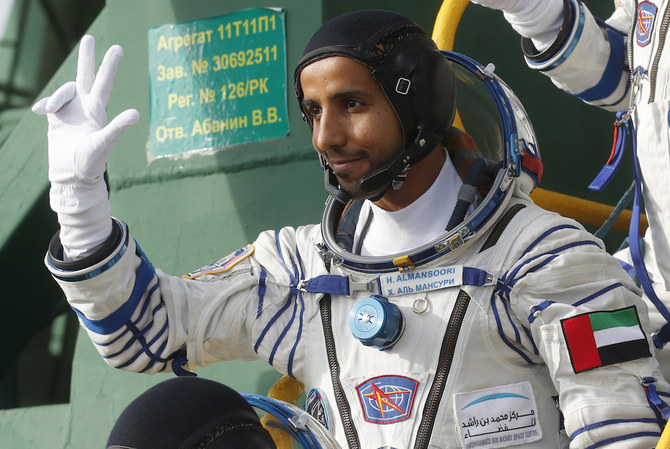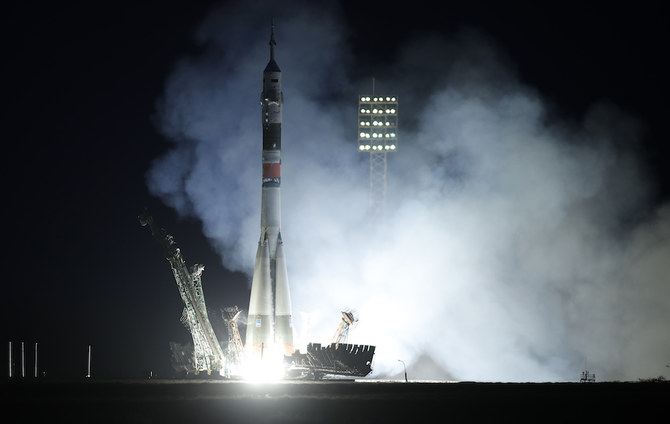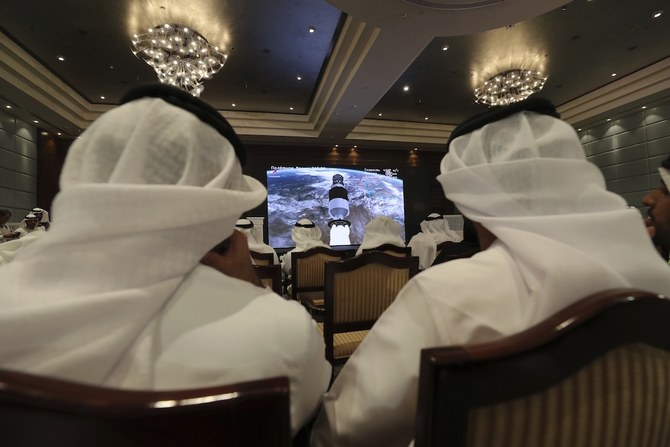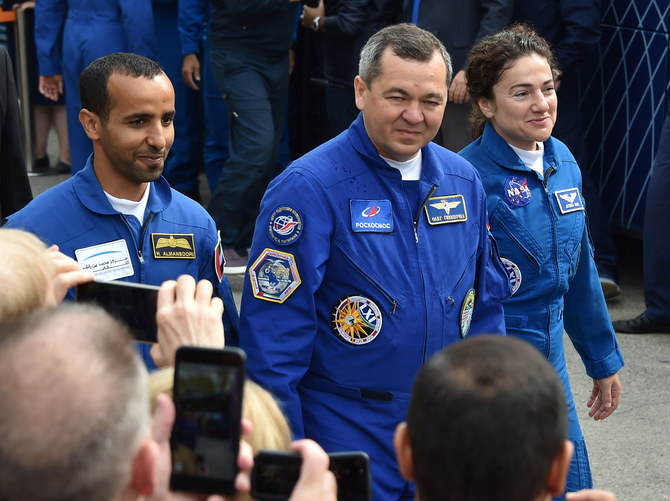MISSION CONTROL, Moscow: The Soyuz MS-15 spacecraft carrying the first Emirati astronaut docked with the International Space Station on Wednesday after launching into space six hours earlier from the Baikonur Cosmodrome in Kazakhstan.
Hazza Al-Mansoori from the UAE, Jessica Meir from the US and veteran Russian commander Oleg Skripochka, took off a few minutes before 5pm Saudi time (2pm GMT) to carry them to the International Space Station.
They docked with the ISS at 10:42 p.m. Saudi time (7:42 p.m. GMT) above the southern Pacific Ocean, and the hatch between the two will be opened about two hours later.
The team at the RKA Mission Control Center, located in Korolyov near Moscow, Russia, congratullated the three crew members on a successful and "simply amazing" docking.
Arab News witnessed an exciting day of action inside Mission Control, with a dramatic blast off earlier in teh day. Staff applauded as the spacecraft passed through its crucial phases and passed through the earth's upper atmosphere.
Abu Dhabi Crown Prince Sheikh Mohammed bin Zayed said he was proud to see Al-Mansoori head towards the International Space Station taking the UAE to “new heights”.
I proudly watched as Hazza Al Mansouri lifted off into space. This event strengthens our confidence in our youth who will take our nation to new heights and reinforces our ambitions for the future. We pray for Hazza’s success and his safe return home.
— محمد بن زايد (@MohamedBinZayed) September 25, 2019
Just hours ahead of the launch, Al-Mansoori tweeted that he was filled with an “indescribable feeling of glory.
A few hours before launch and I’m filled with this indescribable feeling of glory and awe. Today I carry the dreams and ambition of my country to a whole new dimension. May Allah grant me success in this mission. Your brother, Hazzaa AlMansoori.
— Hazzaa AlMansoori (@astro_hazzaa) September 25, 2019
“Today I carry the dreams and ambition of my country to a whole new dimension,” he said.
The center, which has an active control room for the International Space Station, checked the spacecraft’s trajectory until its successful docking about six hours after take off. Al-Mansoori’s watched the launch from the Baikonur Cosmodrome.
In the UAE, Emiratis closely followed the launch, which was played on big screens in Dubai.
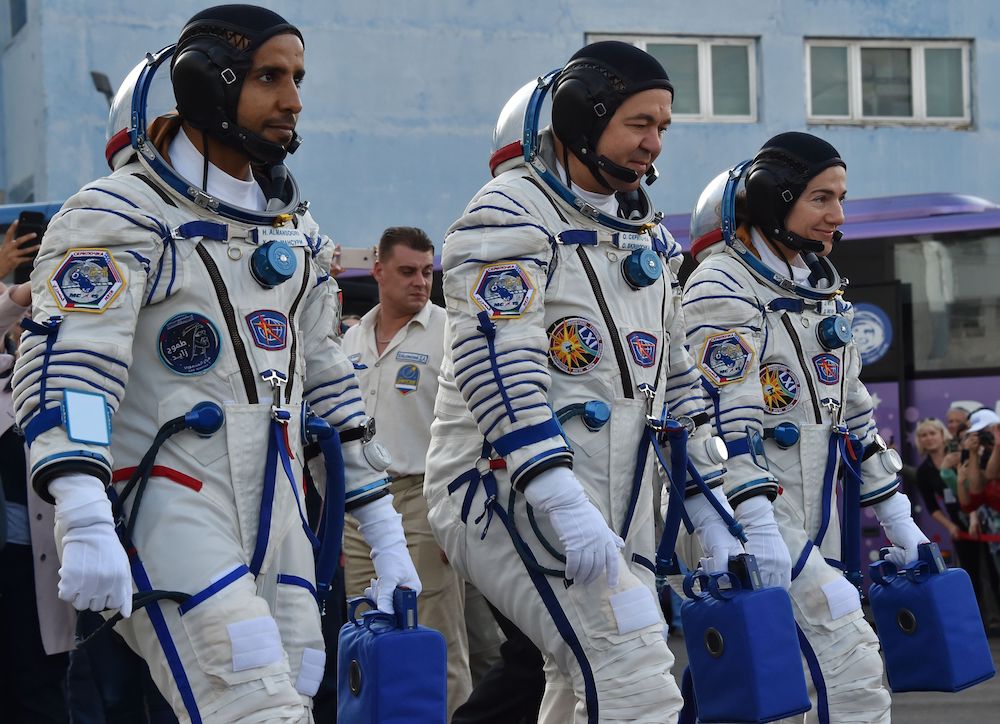
“We are very proud of him,” said an Emirati, who had driven with a friend from the emirate of Ajman to Dubai to watch the liftoff on a big screen at City Walk.
The launch places the UAE’s first astronaut in space as part of the country’s ambitious space program, and he will be the Arab world’s third. The first, Saudi Prince Sultan bin Salman, travelled to space in 1985 aboard NASA’s Discovery space shuttle.
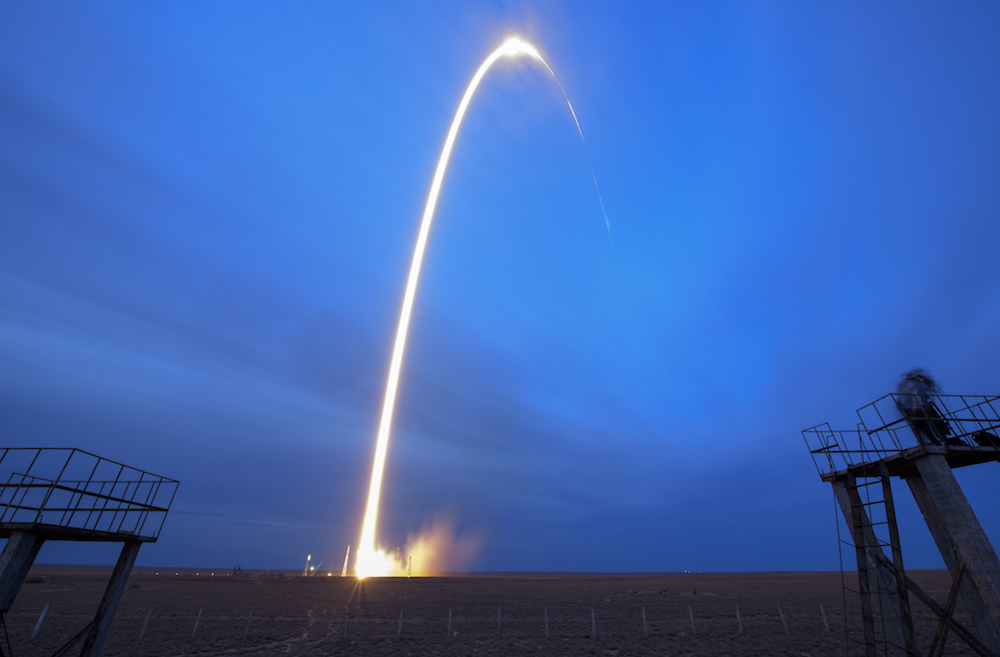
the Soyuz MS-15 spaceship carrying a new crew to the International Space Station (ISS) streaks into the sky during liftoff at the Russian leased Baikonur cosmodrome. (AP/Nasa)
With the help of Russia's Roscosmos State Corporation for Space Activities’ “spaceflight participant” program, Al-Mansoori, along with a number of non-NASA astronauts, is being given a change to fly into space for a few days and participate in various scientific activities on the ISS.
Baikonur, built at the height of the Cold War in the 1950s, is a busy spaceport with numerous commercial, military and scientific missions being launched regularly. A partnership between NASA and the RKA and various other space agencies has seen the launch of many astronauts from there throughout the years.
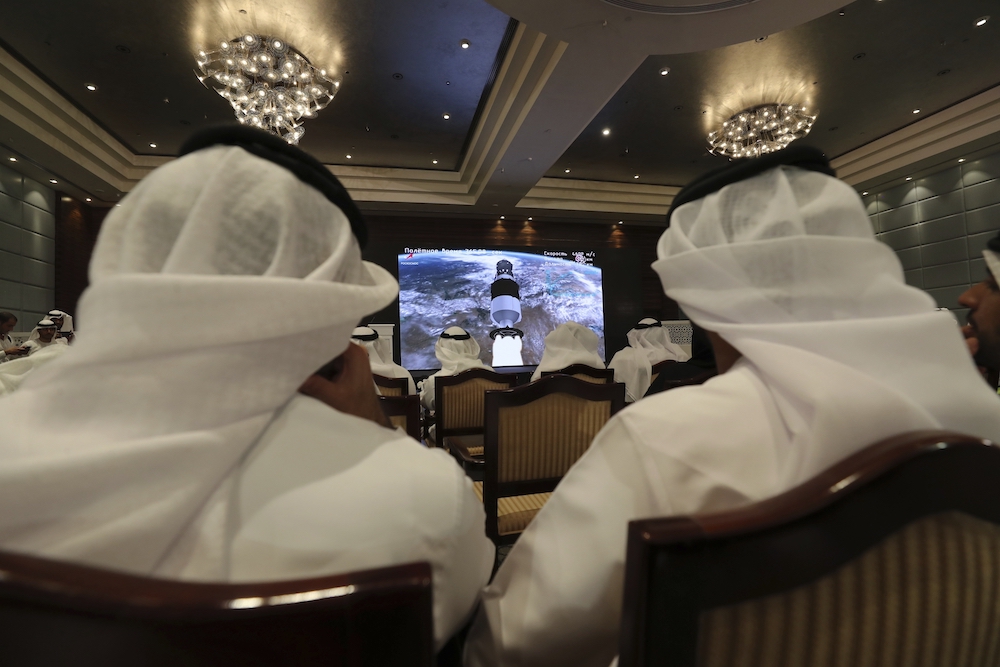
Emiratis in Abu Dhabi watch a live broadcast of a Russian Soyuz MS-15, that took off from the Baikonur Cosmodrome in Kazakhstan, carrying Emirati Astronaut Hazza Al-Mansoori and two other astronauts heading to the International Space Station. (AP)
The number of international astronauts, with exception of the Chinese, riding the Soyuz rockets increased greatly in 2011 after the retirement of NASA’s space shuttle program, with countries shifting reliance to Russia to get their crew up to the ISS.
The Russian Soyuz spacecraft and rockets are well-regarded for their ability to launch in about any weather, which was considered a hindrance with NASA’s space shuttles.
Russia’s space program long predates those of other space agencies. In fact, it kicked off the first space race by launching the world’s first satellite, Sputnik on Oct. 4, 1957.
On April 12, 1961, Soviet cosmonaut Yuri Gagarin became the first human to travel into space, with his flight lasting 108 minutes as he circled the Earth for a little more than one orbit aboard the Vostok spacecraft.


